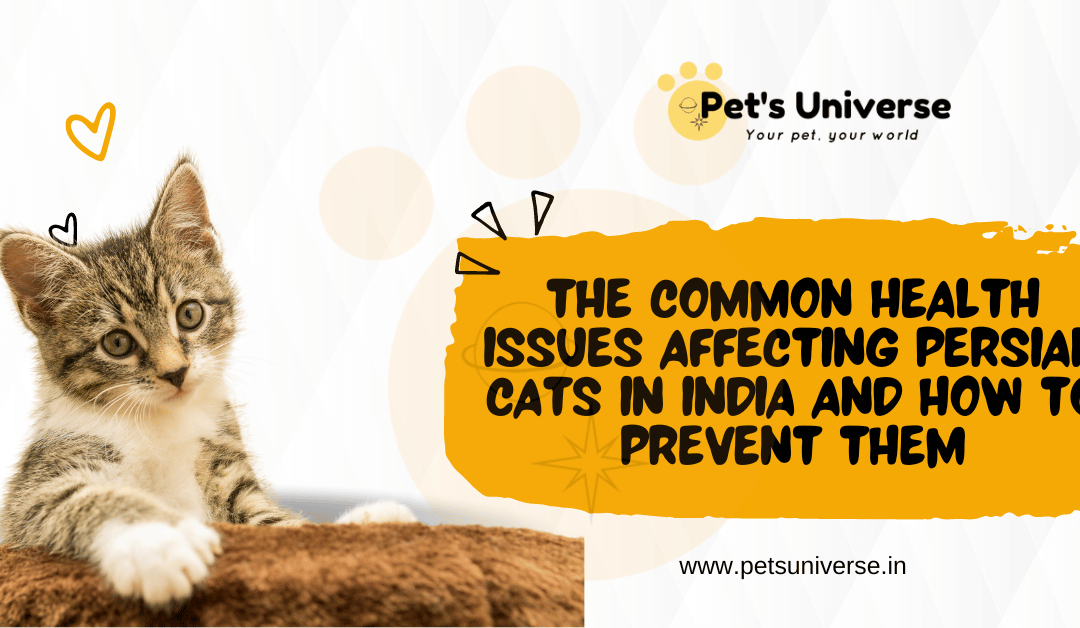The Common Health Issues Affecting Persian Cats in India and How to Prevent Them
Jan 27, 2023 | All Posts, Cats |

Persian cats are known for their beautiful long hair and sweet personalities, making them a popular choice among cat lovers in India. However, due to their unique physical characteristics, Persian cats are prone to certain health issues that are important to be aware of. In this article, we will discuss some of the common health issues affecting Persian cats in India and how to prevent them.
1. Breathing difficulties: One of the most common health issues affecting Persian cats is breathing difficulties. Due to their short noses and flat faces, Persian cats have a higher risk of respiratory problems such as asthma, bronchitis, and sinus infections. To prevent these issues, it’s important to keep your Persian cat’s living environment free of smoke, dust, and other irritants. Regular veterinary check-ups and ensuring they are not exposed to extreme temperatures can also help prevent respiratory issues.
2. Dental problems: Persian cats are also prone to dental problems due to their small mouths and overcrowded teeth. These problems can include tartar buildup, gum disease, and tooth decay. To prevent dental issues, it’s important to brush your Persian cat’s teeth regularly and provide them with dental toys and chews.
3. Eye problems: Persian cats are also prone to eye problems such as tear staining, entropion, and cataracts. These issues can be caused by genetics, improper grooming, or environmental factors. To prevent eye problems, it’s important to keep your Persian cat’s eyes clean, avoid exposing them to smoke or dust, and have regular check-ups with a veterinarian.
4. Obesity: Persian cats are also prone to obesity due to their sedentary lifestyle and love for food. Obesity can lead to a host of health problems such as diabetes, heart disease, and arthritis. To prevent obesity, it’s important to feed your Persian cat a healthy diet and provide them with regular physical exercise and mental stimulation. One of the best examples of a puzzle toy that can provide both physical and mental exercise is the Intellicat Cat Toy. This toy is made of cardboard and is designed to challenge your cat’s problem-solving skills.
5. Grooming: Persian cats are known for their long, thick, and fluffy coats which require regular grooming to keep them in good condition. Regular grooming is necessary to prevent matting, tangling and to keep the coat shiny and clean. Regular grooming also helps to check for any skin issues or parasites.
6. Inherited diseases: Persian cats are prone to certain inherited diseases such as polycystic kidney disease, hip dysplasia, and heart disease. These diseases can be caused by genetics and are not preventable. Regular veterinary check-ups and genetic testing can help to detect these issues early and provide the necessary treatment.
In conclusion, Persian cats are prone to certain health issues due to their unique physical characteristics. By being aware of these issues and taking preventative measures, you can help to ensure that your Persian cat lives a long, happy, and healthy life. Regular veterinary check-ups, proper grooming, providing a healthy diet and regular exercise and mental stimulation are important steps in maintaining your Persian cat’s health. With the right care and attention, your Persian cat can live a long, happy and healthy life in India.
